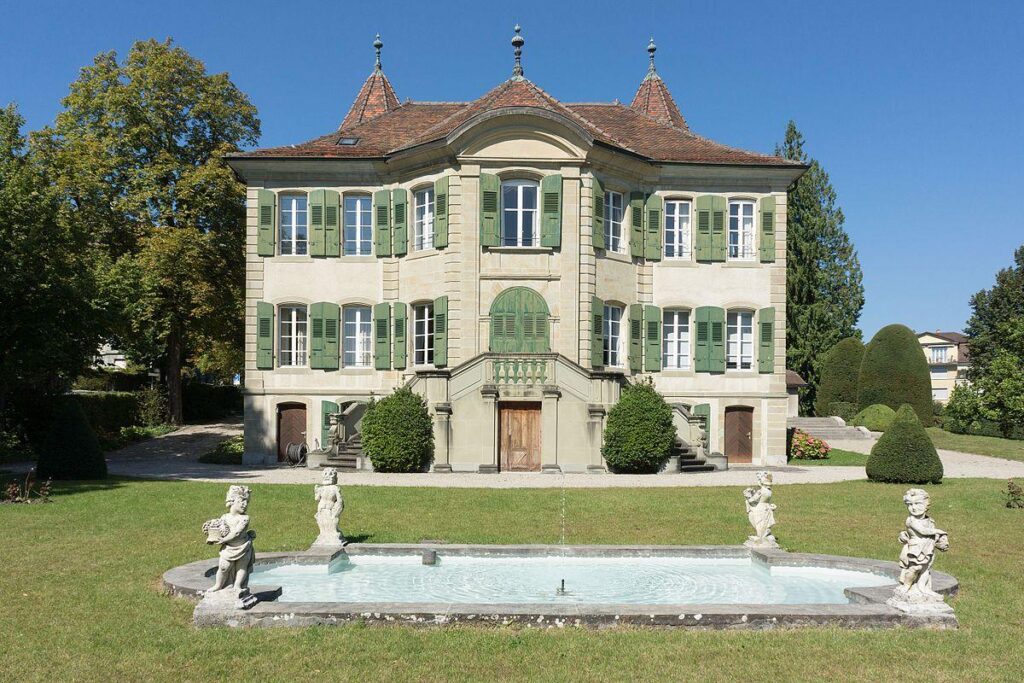In a landmark development shaking the world of international sports disputes, recent rulings underscore that choosing Switzerland as a seat for arbitration no longer guarantees exemption from European Union competition law. The evolving intersection of sports arbitration and EU regulatory frameworks signals a significant shift, challenging long-held assumptions about jurisdictional safe havens. This article explores the implications of these changes for athletes, sports organizations, and legal practitioners navigating the complex landscape where sports law meets EU competition rules.
Sports Arbitration under EU Competition Law Scrutinized for Jurisdictional Challenges
Recent developments have placed the jurisdiction of sports arbitration under intense scrutiny, especially concerning its intersection with EU competition law. Traditionally, sports governing bodies have relied on arbitration in Switzerland to resolve disputes, banking on its perceived neutrality and confidentiality. However, the European Commission’s increasing vigilance highlights that such arbitration cannot operate outside the umbrella of EU law when it comes to competition issues. This pivot challenges the autonomy often claimed by sports tribunals and raises fundamental questions about their decision-making scope in the European context.
Key points of concern include:
- Jurisdictional boundaries: Can Swiss arbitration panels validly apply rules that restrict competition within the EU without breaching EU law?
- Enforceability of awards: Are arbitral decisions rendered in Switzerland immune to EU judicial review when they have a significant economic impact on the EU market?
- Transparency and accountability: Should arbitration proceedings be subject to greater openness given their potential to influence EU-wide markets and athletes’ rights?
To illustrate the evolving landscape, consider the following comparison of jurisdictional claims:
| Aspect | Swiss Arbitration | EU Competition Law | ||||||||||||||||||||||||||||||||||||||||||||||
|---|---|---|---|---|---|---|---|---|---|---|---|---|---|---|---|---|---|---|---|---|---|---|---|---|---|---|---|---|---|---|---|---|---|---|---|---|---|---|---|---|---|---|---|---|---|---|---|---|
| Jurisdictional Reach | National and international sports disputes | Economic activities within EU member states | ||||||||||||||||||||||||||||||||||||||||||||||
| Legal Oversight | Limited judicial review |
| Aspect | Swiss Arbitration | EU Competition Law | ||||||||||||||||||||||||||||||||||||||
|---|---|---|---|---|---|---|---|---|---|---|---|---|---|---|---|---|---|---|---|---|---|---|---|---|---|---|---|---|---|---|---|---|---|---|---|---|---|---|---|---|
| Jurisdictional Reach | National and international sports disputes | Economic activities within EU member states | ||||||||||||||||||||||||||||||||||||||
| Legal Oversight | Limited judicial review
Implications of EU Legal Precedence on Swiss Arbitration Clauses in Sports DisputesThe influence of EU legal precedence on arbitration within Swiss jurisdictions challenges the long-held perception of Switzerland as a sanctuary for sports-related dispute resolution. EU courts have increasingly asserted their jurisdiction in cases involving competition law, signaling that arbitration clauses favoring Swiss forums will not automatically place disputes beyond EU competition scrutiny. This shift disrupts the strategic use of Swiss arbitral seats to circumvent EU rules, emphasizing that the geographical location of arbitration does not exempt parties from compliance with EU competition principles. Consequently, sports governing bodies and stakeholders must reassess their contract drafting and dispute resolution frameworks to ensure alignment with evolving legal realities. Key ramifications include:
Balancing Autonomy and Compliance How Sports Bodies Navigate Competition RulesSports bodies face a complex landscape where the quest for autonomy must be balanced against the strictures of EU competition law. While sports federations strive to regulate their domains independently-setting eligibility criteria, disciplinary measures, and commercial rules-they cannot escape scrutiny when these regulations intersect with broader market dynamics. The challenge lies in ensuring that internal rules do not unjustifiably restrict competition or create barriers that clash with EU economic principles. The tension becomes especially palpable in arbitration, where sports disputes often test the limits of both self-regulation and external legal oversight. Key strategies sports organizations employ involve crafting rulebooks that aim to respect competitive fairness while avoiding violations of antitrust regulations. The pressure to comply with EU law has also diminished traditional reliance on Swiss-based arbitration centers, which were once seen as havens for sports disputes. Today, sports bodies must navigate an intricate interplay between local jurisdictional requirements and EU mandates, forcing reconsideration of dispute resolution venues, jurisdiction clauses, and procedural transparency. Below is a summary of common approaches:
Key Recommendations for Ensuring Sports Arbitration Aligns with EU Regulatory StandardsTo reconcile sports arbitration with the rigorous demands of EU regulatory frameworks, stakeholders must prioritize transparency and procedural fairness. This entails ensuring that arbitration panels strictly adhere to EU competition principles, avoiding any clauses that could unduly restrict market access or promote anti-competitive behavior. Enhancing the independence of arbitrators and incorporating clear guidelines on the applicability of EU law within arbitration agreements are fundamental steps. Additionally, the harmonization of arbitration rules with EU standards will prevent legal loopholes commonly exploited by parties seeking refuge outside EU jurisdictions, like Switzerland. Equally crucial is the establishment of monitoring mechanisms that proactively assess arbitral decisions’ compliance with EU competition law. Sports entities, legal professionals, and regulators should foster ongoing dialogue to create a collaborative environment for dispute resolution that reflects EU market realities. The table below summarizes actionable measures to embed EU compliance within sports arbitration frameworks:
In RetrospectIn conclusion, the evolving landscape of sports arbitration continues to face increasing scrutiny under the EU’s robust competition law framework. The recent developments highlighted in “Sports Arbitration and EU Competition Law: No Escape to Switzerland!” underscore that attempts to circumvent EU regulations through arbitration clauses or venues in Switzerland are becoming less tenable. As the European legal environment tightens its grip, stakeholders in the sports industry must adapt, ensuring that dispute resolution mechanisms align with EU competition rules. This shift not only redefines the jurisdictional boundaries of sports arbitration but also reinforces the EU’s commitment to maintaining fair competition within its internal market.
Add A Comment
|





